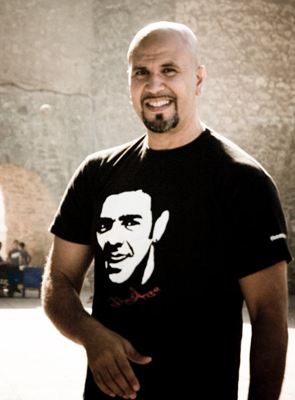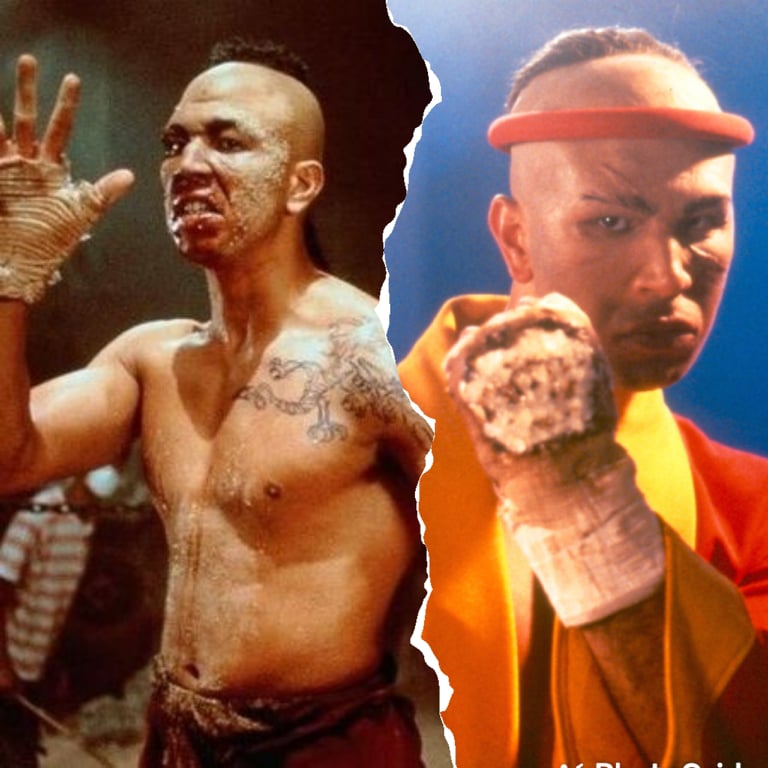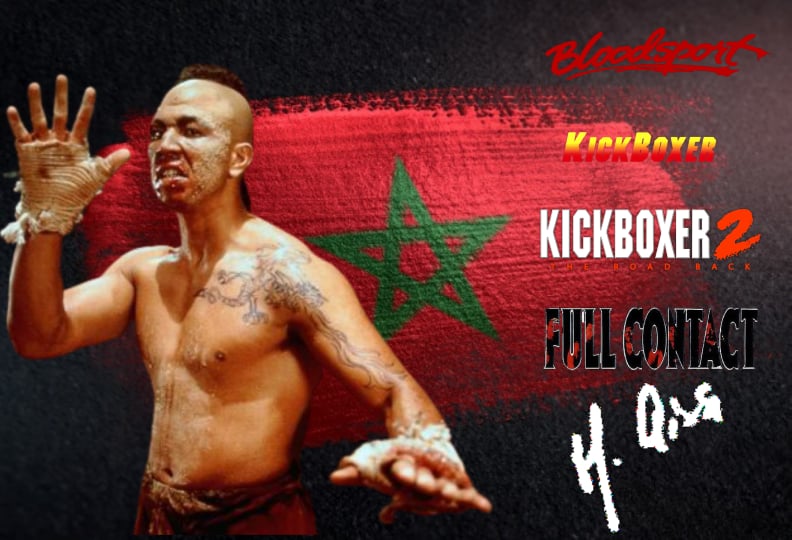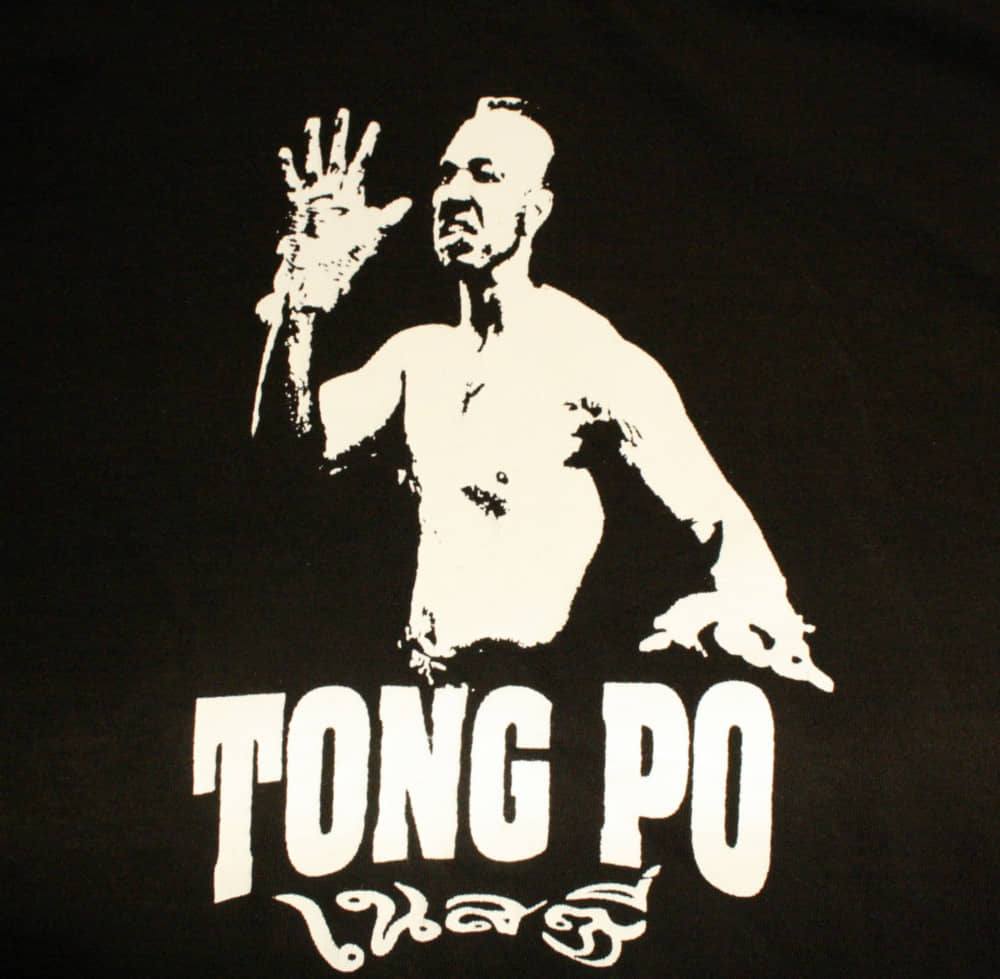We are extremely pleased to bring this interview with film star, Michel Qissi, a Belgian-Moroccan actor, director, screenwriter, stuntman, and martial choreographer. He is notably known for having played alongside Jean-Claude Van Damme in Bloodsport, Kickboxer, and Lionheart; and he choreographed the fights in Kickboxer, in which he played the cult villain, Tong Po. Mr. Qissi is in conversation with Grégoire Canlorbe, the French philosopher.
Grégoire Canlorbe (GC): Your first name, Mohamed, was changed into Michel, then back to Mohamed again. What is the story behind this?
Michel Qissi (MQ): When I was little, I helped Jean-Claude in his mother’s flower shop in Brussels, on Avenue Buyl. His mother, whom I called, “Grandma,” and his father, whom I called “Grandpa,” both called me Michel. Then, Jean-Claude, whom I got to know when we were young, also called me by that name. And when we both went to America in 1982, he continued to call me Michel. Today, it’s been twenty years that I have returned to Morocco and taken again the first name of my origins, the one my parents gave me and by which everyone here continues to call me.

GC: You were a choreographer on Kickboxer. Please tell us about that experience. What distinguishes dance choreography from fight choreography?
MQ: I indeed took care of the choreography and of the casting of the fighters in Kickboxer, which was an extraordinary experience. The fact that Jean-Claude and I had both trained for years and years, since we were little, was a huge help to us in our fight scene at the end of the film. There is dance in this fight, a visual beauty of the moves, which is why it looks so good on screen.
Dance and fight choreographies are nonetheless completely different things. I wouldn’t be able to choreograph a dance scene; but a fight choreography where the movements are of impeccable fluidity and elegance, where a kind of dance is played, a warrior-style dance, is something that is possible for me.
The risk of injury is much greater in combat choreography than it is in dance choreography. The actors recruited for fight scenes don’t just have to know how to act; they have to know how to fight, which is not something you learn in six months. They must be experienced fighters, who know how to control themselves, control their strength, and resist fatigue.

GC: Is Tong Po an entirely bad character? Or does he keep a part of the light inside himself, like Darth Vader?
MQ: The utter nastiness of Tong Po is plainly evident in the film. It impressed the spectators. As for Tong Po’s past and why he has become such an evil being, devoid of any light, the film remains a mystery. While it is true that some are born with a mental disorder, we are never born wicked. We are all angels when we come into the world. An unhappy childhood, marked by mistreatment and sexual abuse, is one of the things that can explain why some take a fatal path while growing up. At the moment, I am being offered the launching of an opus that would explore Tong Po’s youth, the education he received, the life’s challenges that he encountered and which rendered him the brutal and cruel being that the Sloan brothers have to face in Kickboxer.
GC: What do you think of Dave Bautista as Tong Po in Kickboxer: Vengeance, which is the remake of the original Kickboxer movie?
MQ: It is an honor for me that Dave Bautista, someone who enormously matters in the cinema world, whom we have seen playing in important films, like Blade Runner 2049, that he took over the character of Tong Po whom I was the first to bring to life. An honor and a pleasure.
GC: Would you say that the “American dream” that you lived is still possible for a young person in Morocco today?
MQ: Everything is possible in life, whether you are a Moroccan, or someone from another country. Everything is possible, provided that you are passionate, patient, and persevering; and that you work hard, get up early every morning, and enter those places where your passion brings you. If you are passionate about cinema, go where the cinema is. Whatever is the environment in which your passion finds itself, you will meet good and bad people there. Go to the right people; those who will help you. With advances in communication, contacting the right person is easier today than it was in the 1980s.

GC: Thank you for your time. In the end, what message do you want to convey?
MQ: My message to everyone, especially young people, is the following. On the one hand, respect your body, stay away from all bad drugs. The good drug is sport; the bad one is stuff like cigarettes, alcohol, or cocaine. On the other hand, respect your parents, whoever they are; listen to and respect their advice—especially when it comes from wise people.
